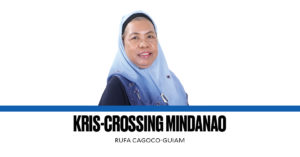In the midst of a climate of hate that has enveloped our country in the past few years, there is still a huge reservoir of kindheartedness among our people after all. I had a front-row seat in witnessing the heartwarming display of so much compassion by ordinary Filipinos recently.
There has been so much hostility among our countrymen since the assumption to office of the current administration. At no other period in post-Marcos history has the political and moral divide in our country been so stark as it is now. Any debate that goes on questioning any action or inaction of the Duterte administration is filled with animosity and foul language. If the thread that binds us as a people was already weak even before the advent of the current administration—splintered as we are by more than a hundred languages, thousands of islands, and a huge economic divide—the fractures in our sense of nationhood have only grown bigger as a result of the polarizing policies of the ruling administration.
One would expect that the atmosphere of antagonism would diminish our people’s capacity for empathy. After all, we see family members, friends, neighbors, and strangers bitterly pitted against each other in toxic political debates. But the recent floods that brought so much devastation to my town, Alcala in Cagayan province, showed me that beneath the scorching surface of anger, there is still a wellspring of kindness and generosity. Filipinos strongly care, and they go out of their way to help fellow countrymen beset with misfortune.
The Cagayan Valley region has received less private donor assistance in past natural disasters compared to the Bicol region, the Visayan islands, and Metro Manila. But the floods that devastated Northeastern Luzon last November were unprecedented in its magnitude, totally submerging many barangays and inundating a stretch of land more than 100 kilometers in distance. Video footage of people on rooftops pleading for rescue, and families huddled along the road begging for relief goods, were heart-wrenching images.
As soon as the floods receded to make roads passable, a steady stream of vehicles trooped to the devastated towns, bringing relief goods and funds. From my vantage point as a kin of the mayor of Alcala, I learned of the many cases of high school and college students who organized donation drives with their families and classmates; of impromptu groupings of neighbors, officemates, and friends who collected food, water, clothing, and hygiene kits from among themselves; of Filipinos abroad who devised ways to send their donations; and of businesses likely suffering from the economic downturn that nevertheless still managed to pitch in.
There were town mayors, some accompanied by the full contingent of their Sangguniang Bayan members, who trooped to Alcala to personally hand in their check donations. They came from neighboring towns and provinces, and even from places as distant as Muntinlupa, Batangas, Nueva Ecija, and Ilocos Norte.
There were donors who distributed relief goods directly to the communities, suspicious as they were that local leaders would misuse the donations. An unintended consequence of this practice, however, is that some barangays end up with a huge bonanza of relief goods, while far-flung ones are left with a pittance. There is wisdom in coordinating relief efforts with local leaders because they know the communities in direst need of assistance.
Beyond relief goods, affected families will need recovery assistance in the forms of seeds and farm inputs, as well as new livestock, to replace their destroyed crops and dead pigs and goats. The local government donors have this essential need in mind, for which reason they hand in check donations.
The overwhelming number and volume of relief assistance that I witnessed came from spontaneous and leaderless initiatives. It was an uplifting case of ordinary people helping ordinary people. We are not a hopeless people, after all. It makes me wonder if all the hate and anger that simmer online are engineered reality.
Comments to fleamarketofideas@gmail.com


